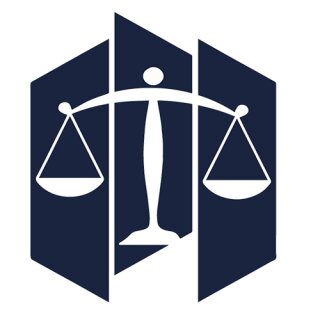Best ADR Mediation & Arbitration Lawyers in North Bay
Share your needs with us, get contacted by law firms.
Free. Takes 2 min.
List of the best lawyers in North Bay, Canada
About ADR Mediation & Arbitration Law in North Bay, Canada
Alternative Dispute Resolution (ADR), which includes mediation and arbitration, is an increasingly popular method for resolving disputes outside of traditional courtroom litigation. In North Bay, Ontario, as in the rest of Canada, ADR methods offer parties a private, often faster, and sometimes less expensive route to settle disagreements in areas such as family, business, employment, construction, and community conflicts. Mediation involves a neutral third party who facilitates negotiations, while arbitration involves an arbitrator who hears evidence and makes a binding or non-binding decision, depending on the agreement between the parties.
Why You May Need a Lawyer
There are several situations in which individuals or organizations in North Bay might require legal assistance with ADR processes:
- Complex Contractual Disputes: Where contracts contain ADR clauses, understanding rights and obligations is crucial.
- Family Law Issues: Divorce, custody, and property matters often go through mediation or arbitration as required under Ontario law.
- Workplace Disputes: Employment disagreements can benefit from guided settlement efforts.
- Construction Conflicts: These often require specialized arbitration to resolve timelines and payment disagreements.
- Ensuring Fairness: Legal help can ensure procedures are followed and outcomes are enforceable.
- Reviewing Agreements: Lawyers can help draft or review mediation/arbitration agreements.
- Enforcement of Awards: If an arbitration award is ignored, a lawyer assists with enforcement through the courts.
- Understanding Rights and Obligations: The specialized nature of ADR can be complex for those unfamiliar with legal terminology or procedures.
Local Laws Overview
In North Bay, ADR processes are governed by a combination of federal and provincial legislation, and sometimes local by-laws or court directives. Key frameworks include:
- The Arbitration Act, 1991 (Ontario), which defines procedures for arbitration, recognition, and enforcement of awards.
- The Mediation rules in family law, as part of the Ontario Family Law Act and court policies, which often require mandatory mediation for certain disputes.
- Commercial Mediation governed by contract and applicable regulatory standards.
- Access to Court-Connected ADR Programs: North Bay’s Superior Court of Justice may refer certain civil and family cases to mediation or arbitration before proceeding with litigation.
- Voluntary and Mandatory Processes: Some matters, such as small claims or family disputes, may be subject to mandatory mediation, while others are voluntary depending on parties’ agreement.
- Confidentiality Rules: Mediation and, to a certain extent, arbitration are typically confidential, but there are exceptions dictated by statutory requirements.
Frequently Asked Questions
What is the difference between mediation and arbitration?
Mediation is a voluntary process where a neutral mediator helps parties negotiate a mutually acceptable agreement. Arbitration is more formal; the arbitrator hears evidence and makes a binding or non-binding decision.
Are mediation and arbitration legally binding?
Mediation agreements are generally not binding until formalized in a contract. Arbitration decisions, if binding (as agreed), are enforceable in court, similar to a court judgment.
Do I need a lawyer for mediation or arbitration?
While not always required, having a lawyer ensures you understand the process, your rights, and options, and can make sure any agreement is properly documented and enforceable.
How much does mediation or arbitration cost in North Bay?
Costs vary based on complexity, length, and the mediator or arbitrator’s fees. It is often less expensive compared to court, but legal advice may still be advisable and additional costs should be discussed in advance.
Is participation in ADR mandatory?
Some family law and civil cases may require mandatory mediation before proceeding through the courts. Otherwise, participation is usually voluntary unless agreed to by contract.
What types of disputes are suitable for ADR?
ADR is suitable for family, commercial, employment, landlord-tenant, construction, and many civil disputes. Matters involving serious criminality or urgent injunctions may still require court intervention.
Can I appeal an arbitration award?
Appeals are limited. Parties can only appeal on specific grounds set out in the Arbitration Act or by agreement, such as serious errors of law or jurisdictional issues.
How confidential are mediation and arbitration proceedings?
Both processes are generally confidential, but there are exceptions, such as when required by law or for enforcing or challenging an award in court.
How do I choose an arbitrator or mediator?
You can choose based on experience, accreditation (such as membership in ADR professional bodies), or by mutual agreement. Courts, legal professionals, and organizations often provide referrals.
What happens if the other party refuses to participate in ADR?
If ADR is voluntary, you cannot force participation. If mandated by a contract or local rules, there can be legal consequences, such as court sanctions or adverse cost awards.
Additional Resources
If you are seeking ADR-related legal advice or information in North Bay, consider these resources:
- Ontario Ministry of the Attorney General: Provides information on mediation programs, arbitration, and legal supports.
- Law Society of Ontario: Offers lawyer referral services, including those specializing in ADR.
- ADR Institute of Ontario: Accredits professional mediators and arbitrators, with directories and information for the public.
- Family Law Information Centres: Local court-based centers that offer information and resources on mediation and arbitration in family law matters.
- Community Mediation Services: Some non-profit groups in Ontario provide free or low-cost mediation for community, neighbor, or minor civil disputes.
- North Bay Courthouse: For information on court-connected mediation and accessing local legal advice clinics.
Next Steps
If you believe that ADR mediation or arbitration is the right approach for your dispute in North Bay, consider the following steps:
- Assess Your Situation: Determine whether your issue could benefit from ADR, either voluntarily or as required by law.
- Contact a Legal Professional: Speak with a lawyer who practices ADR law in North Bay for tailored advice and to understand your rights and options.
- Gather Documentation: Prepare any contracts, correspondence, or evidence related to your dispute.
- Consider Accredited Neutrals: Ask your lawyer or professional organizations for recommendations for qualified mediators or arbitrators.
- Prepare Questions: Make a list of questions for your initial consultation to ensure you understand fees, timelines, and the suitability of ADR for your case.
- Follow Up: Once you’ve begun the process, maintain communication with your legal representative to ensure your interests are protected throughout the ADR proceedings.
Lawzana helps you find the best lawyers and law firms in North Bay through a curated and pre-screened list of qualified legal professionals. Our platform offers rankings and detailed profiles of attorneys and law firms, allowing you to compare based on practice areas, including ADR Mediation & Arbitration , experience, and client feedback.
Each profile includes a description of the firm's areas of practice, client reviews, team members and partners, year of establishment, spoken languages, office locations, contact information, social media presence, and any published articles or resources. Most firms on our platform speak English and are experienced in both local and international legal matters.
Get a quote from top-rated law firms in North Bay, Canada — quickly, securely, and without unnecessary hassle.
Disclaimer:
The information provided on this page is for general informational purposes only and does not constitute legal advice. While we strive to ensure the accuracy and relevance of the content, legal information may change over time, and interpretations of the law can vary. You should always consult with a qualified legal professional for advice specific to your situation.
We disclaim all liability for actions taken or not taken based on the content of this page. If you believe any information is incorrect or outdated, please contact us, and we will review and update it where appropriate.










